- Home
- Packaging Products
- Lubricant Containers Market Size, Future Growth and Forecast 2033
Lubricant Containers Market Size, Future Growth and Forecast 2033
Lubricant Containers Market Segments - by Material Type (Plastic, Metal), Capacity (Less than 1 Liter, 1-5 Liters, Above 5 Liters), End-User (Automotive, Industrial, Marine, Aerospace, Others), and Region (North America, Europe, Asia Pacific, Latin America, Middle East & Africa) - Market Dynamics, Growth Opportunities, Strategic Drivers, and PESTLE Outlook (2025–2033)
Lubricant Containers Market Outlook
The lubricant containers market was valued at $5.2 billion in 2024 and is projected to reach $7.8 billion by 2033, growing at a CAGR of 4.5% during the forecast period 2025-2033. This market is driven by the increasing demand for lubricants across various industries such as automotive, industrial, and marine. The growth in the automotive sector, particularly in emerging economies, is a significant driver for lubricant containers as they are essential for packaging and transporting lubricants. Additionally, the rise in industrial activities and the expansion of manufacturing sectors globally are contributing to the increased demand for lubricant containers. The market is also witnessing innovations in container design and materials, aimed at improving durability and sustainability, which are further propelling market growth.
However, the market faces challenges such as stringent environmental regulations regarding plastic usage, which is a predominant material in lubricant containers. The shift towards eco-friendly and biodegradable materials is both a challenge and an opportunity for manufacturers. Companies are investing in research and development to create Sustainable Packaging solutions that comply with environmental standards. The potential for growth is significant, especially with the increasing focus on sustainability and the development of new materials that offer better performance and lower environmental impact. The market is poised for growth as companies adapt to these changes and leverage technological advancements to meet evolving consumer demands.
Report Scope
| Attributes | Details |
| Report Title | Lubricant Containers Market Size, Future Growth and Forecast 2033 |
| Base Year | 2024 |
| Historic Data | 2017-2023 |
| Forecast Period | 2025-2033 |
| Number of Pages | 245 |
| Material Type | Plastic, Metal |
| Capacity | Less than 1 Liter, 1-5 Liters, Above 5 Liters |
| End-User | Automotive, Industrial, Marine, Aerospace, Others |
| Region | North America, Europe, Asia Pacific, Latin America, Middle East & Africa |
| Customization Available | Yes* |
Key Highlights Lubricant Containers Market

- Increasing demand for lubricant containers in the automotive and industrial sectors.
- Shift towards sustainable and eco-friendly packaging solutions.
- Innovations in container design for enhanced durability and usability.
- Growth in emerging markets due to industrialization and urbanization.
- Challenges posed by stringent environmental regulations on plastic usage.
- Expansion of manufacturing sectors driving demand for lubricant containers.
- Technological advancements in material science for better performance.
- Rising investments in research and development for sustainable packaging.
- Growing focus on reducing carbon footprint in packaging solutions.
- Increased adoption of biodegradable materials in container manufacturing.
Competitive Intelligence
The lubricant containers market is highly competitive, with several key players striving to gain a larger market share. Companies such as Greif Inc., Mauser Group, and Scholle IPN are leading the market with their extensive product portfolios and global presence. Greif Inc. is known for its innovative packaging solutions and strong focus on sustainability, which has helped it maintain a significant market share. Mauser Group, with its robust distribution network and diverse product offerings, continues to expand its reach in emerging markets. Scholle IPN is recognized for its Advanced Packaging technologies and commitment to reducing environmental impact, making it a preferred choice for eco-conscious consumers.
Other notable players include Time Technoplast Ltd., Balmer Lawrie & Co. Ltd., and Mold-Tek Packaging Ltd., each bringing unique strengths to the market. Time Technoplast Ltd. is gaining ground with its focus on lightweight and durable packaging solutions. Balmer Lawrie & Co. Ltd. leverages its extensive experience in the industry to offer reliable and cost-effective products. Mold-Tek Packaging Ltd. is known for its innovative designs and customization capabilities, catering to specific client needs. The competitive landscape is characterized by strategic partnerships, mergers, and acquisitions, as companies aim to enhance their product offerings and expand their market presence.
Regional Market Intelligence of Lubricant Containers
In North America, the lubricant containers market is valued at approximately $1.5 billion and is expected to grow steadily due to the strong presence of the automotive and industrial sectors. The demand for sustainable packaging solutions is driving innovation in this region. Europe, with a market size of $1.2 billion, is witnessing growth driven by stringent environmental regulations and the shift towards eco-friendly materials. The Asia-Pacific region, valued at $2.1 billion, is the fastest-growing market, fueled by rapid industrialization and urbanization in countries like China and India. Latin America and the Middle East & Africa, with market sizes of $0.8 billion and $0.6 billion respectively, are experiencing moderate growth, supported by the expansion of the manufacturing and automotive sectors.
In North America, the focus on reducing carbon emissions and promoting sustainable practices is a key driver for the lubricant containers market. The region's well-established automotive industry also contributes significantly to the demand for lubricant containers. In Europe, the market is shaped by regulatory frameworks that encourage the use of biodegradable and recyclable materials. The Asia-Pacific region is characterized by a high demand for lubricants, driven by the booming automotive and industrial sectors. The growing middle class and increasing disposable incomes in this region are also contributing to market growth. In Latin America and the Middle East & Africa, the market is supported by the development of infrastructure and the growth of the automotive industry, although economic challenges and political instability may pose risks to market expansion.
Top Countries Insights in Lubricant Containers
In the United States, the lubricant containers market is valued at $1.2 billion, with a CAGR of 4%. The country's strong automotive and industrial sectors drive demand, while the focus on sustainability and innovation presents growth opportunities. In China, the market is valued at $1.5 billion, with a CAGR of 6%. Rapid industrialization and urbanization, along with government initiatives to promote sustainable practices, are key growth drivers. Germany, with a market size of $0.9 billion and a CAGR of 3%, is influenced by stringent environmental regulations and the demand for eco-friendly packaging solutions.
India's market, valued at $0.7 billion with a CAGR of 7%, is driven by the expanding automotive sector and increasing industrial activities. The government's push for sustainable development and the adoption of new technologies are also contributing to market growth. In Brazil, the market is valued at $0.5 billion, with a CAGR of 5%. The growth of the manufacturing and automotive sectors, along with the focus on reducing environmental impact, are key factors driving the market. However, economic challenges and political instability may pose risks to growth in this region.
Lubricant Containers Market Segments Insights

Material Type Analysis
The lubricant containers market is segmented by material type into plastic and metal. Plastic containers dominate the market due to their lightweight, cost-effectiveness, and versatility. They are widely used in the automotive and industrial sectors for packaging lubricants. However, the increasing environmental concerns and regulatory pressures are driving the shift towards sustainable materials. Manufacturers are investing in research and development to create biodegradable and recyclable plastic containers that meet environmental standards. Metal containers, although less popular, are preferred for their durability and ability to withstand harsh conditions. They are commonly used in industrial and marine applications where robustness is crucial.
The demand for eco-friendly materials is a significant trend in the material type segment. Companies are exploring alternatives such as bioplastics and recycled materials to reduce their carbon footprint. The focus on sustainability is driving innovation in material science, leading to the development of new materials that offer better performance and lower environmental impact. The competition in this segment is intense, with companies striving to differentiate themselves through innovative solutions and sustainable practices. The shift towards eco-friendly materials presents both challenges and opportunities for manufacturers, as they navigate regulatory requirements and consumer preferences.
Capacity Analysis
The capacity segment of the lubricant containers market is divided into less than 1 liter, 1-5 liters, and above 5 liters. Containers with a capacity of 1-5 liters are the most popular, as they are suitable for a wide range of applications in the automotive and industrial sectors. These containers offer a balance between convenience and cost-effectiveness, making them a preferred choice for consumers. The demand for smaller containers, less than 1 liter, is also growing, driven by the increasing trend of DIY maintenance and the need for convenient packaging solutions.
Containers with a capacity of above 5 liters are primarily used in industrial and marine applications where larger quantities of lubricants are required. The demand for these containers is influenced by the growth of the industrial sector and the expansion of manufacturing activities. The capacity segment is characterized by a diverse range of products, catering to different consumer needs and preferences. Manufacturers are focusing on developing innovative designs and features that enhance the usability and functionality of containers. The competition in this segment is driven by the need to offer cost-effective and efficient packaging solutions that meet the evolving demands of consumers.
End-User Analysis
The end-user segment of the lubricant containers market includes automotive, industrial, marine, aerospace, and others. The automotive sector is the largest end-user, accounting for a significant share of the market. The demand for lubricant containers in this sector is driven by the growth of the automotive industry and the increasing need for efficient packaging solutions. The industrial sector is another major end-user, with the demand for lubricant containers driven by the expansion of manufacturing activities and the need for reliable packaging solutions.
The marine and aerospace sectors also contribute to the demand for lubricant containers, although to a lesser extent. These sectors require specialized packaging solutions that can withstand harsh conditions and ensure the safe transportation of lubricants. The end-user segment is characterized by diverse requirements and preferences, with manufacturers focusing on developing customized solutions that meet the specific needs of different industries. The competition in this segment is intense, with companies striving to offer innovative and cost-effective packaging solutions that enhance the efficiency and performance of their products.
Regional Analysis
The regional segment of the lubricant containers market is divided into North America, Europe, Asia Pacific, Latin America, and Middle East & Africa. The Asia Pacific region is the largest and fastest-growing market, driven by rapid industrialization and urbanization in countries like China and India. The demand for lubricant containers in this region is influenced by the growth of the automotive and industrial sectors, as well as the increasing focus on sustainability and environmental protection.
North America and Europe are mature markets, with a strong focus on innovation and sustainability. The demand for lubricant containers in these regions is driven by the need for eco-friendly packaging solutions and the growth of the automotive and industrial sectors. Latin America and the Middle East & Africa are emerging markets, with growth driven by the expansion of manufacturing activities and the development of infrastructure. The regional segment is characterized by diverse market dynamics and consumer preferences, with manufacturers focusing on developing region-specific solutions that meet the unique needs of different markets.
The lubricant containers market is characterized by a diverse range of players, each striving to capture a larger share of the market. Greif Inc. and Mauser Group are among the leading companies, with significant market shares due to their extensive product portfolios and global reach. Scholle IPN is also a key player, known for its innovative packaging solutions and commitment to sustainability. These companies are leveraging their strengths in research and development, distribution networks, and customer relationships to maintain their competitive positions.
Other notable players include Time Technoplast Ltd., Balmer Lawrie & Co. Ltd., and Mold-Tek Packaging Ltd., each bringing unique strengths to the market. The market share distribution is influenced by factors such as pricing strategies, product innovation, and strategic partnerships. Companies that can effectively differentiate themselves through innovative solutions and sustainable practices are likely to gain a competitive edge. The market share distribution also affects pricing, with companies striving to offer cost-effective solutions that meet the evolving demands of consumers. The focus on sustainability and innovation is driving competition, with companies investing in research and development to create new products and enhance their market positions.
Lubricant Containers Market Segments
The Lubricant Containers market has been segmented on the basis of
Material Type
- Plastic
- Metal
Capacity
- Less than 1 Liter
- 1-5 Liters
- Above 5 Liters
End-User
- Automotive
- Industrial
- Marine
- Aerospace
- Others
Region
- North America
- Europe
- Asia Pacific
- Latin America
- Middle East & Africa
Primary Interview Insights
What are the key drivers for the lubricant containers market?
How are environmental regulations impacting the market?
What role does innovation play in this market?
Which regions are experiencing the fastest growth?
What challenges do manufacturers face in this market?
Latest Reports

The fiber drums market was valued at $1.2 billion in 2024 and is projected to reach $2.1 billion by 2033, growing at a CAGR of 6.5% during the forecast period 2025–2033.
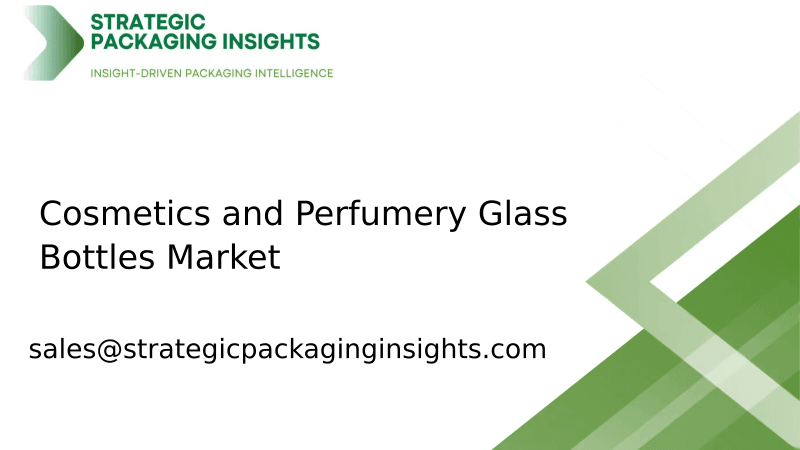
The cosmetics and perfumery glass bottles market was valued at $1.5 billion in 2024 and is projected to reach $2.3 billion by 2033, growing at a CAGR of 4.8% during the forecast period 2025–2033.

The medical devices packaging market was valued at $25 billion in 2024 and is projected to reach $40 billion by 2033, growing at a CAGR of 5.5% during the forecast period 2025–2033.
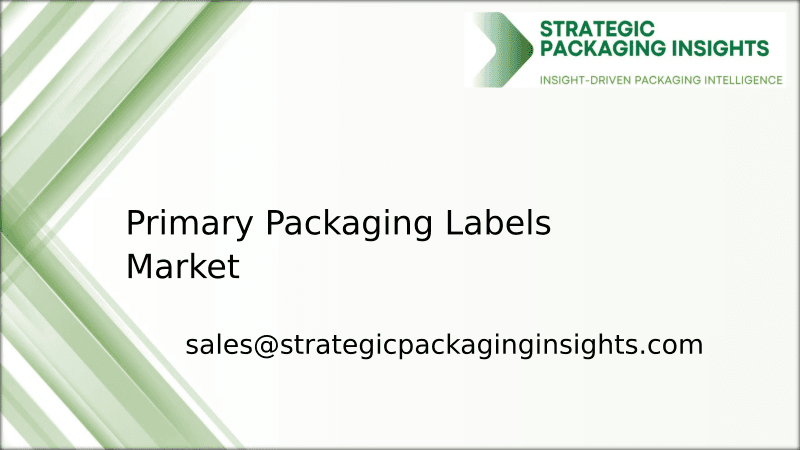
The primary packaging labels market was valued at $35 billion in 2024 and is projected to reach $55 billion by 2033, growing at a CAGR of 5.2% during the forecast period 2025–2033.

The corrugated board packaging market was valued at $250 billion in 2024 and is projected to reach $380 billion by 2033, growing at a CAGR of 4.5% during the forecast period 2025–2033.

The Water Soluble Packaging Films market was valued at $2.8 billion in 2024 and is projected to reach $5.6 billion by 2033, growing at a CAGR of 8.1% during the forecast period 2025–2033.

The Aluminium Foil Packaging market was valued at $25 billion in 2024 and is projected to reach $40 billion by 2033, growing at a CAGR of 5.5% during the forecast period 2025–2033.

The self-heating food packaging market was valued at $4.5 billion in 2024 and is projected to reach $7.8 billion by 2033, growing at a CAGR of 6.2% during the forecast period 2025–2033.

The Smart Container market was valued at $2.5 billion in 2024 and is projected to reach $8.7 billion by 2033, growing at a CAGR of 14.5% during the forecast period 2025–2033.

The Automatic Labeling Machine market was valued at $2.5 billion in 2024 and is projected to reach $4.8 billion by 2033, growing at a CAGR of 7.2% during the forecast period 2025–2033.

The Hot Melt Glue Labeler market was valued at $1.2 billion in 2024 and is projected to reach $2.3 billion by 2033, growing at a CAGR of 6.5% during the forecast period 2025–2033.

The Ethical Label market was valued at $1.5 billion in 2024 and is projected to reach $3.2 billion by 2033, growing at a CAGR of 8.5% during the forecast period 2025–2033.

The Packaging Tensioner market was valued at $1.2 billion in 2024 and is projected to reach $2.3 billion by 2033, growing at a CAGR of 6.5% during the forecast period 2025–2033.
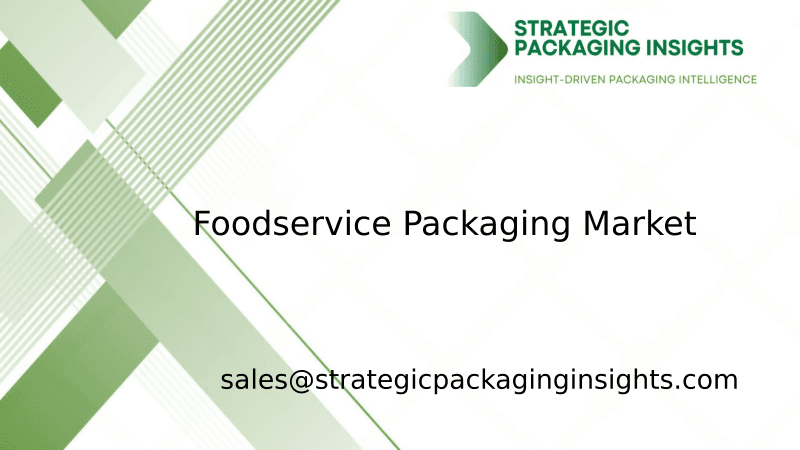
The foodservice packaging market was valued at $120 billion in 2024 and is projected to reach $180 billion by 2033, growing at a CAGR of 4.5% during the forecast period 2025–2033.

The nano-enabled packaging market was valued at $15.2 billion in 2024 and is projected to reach $35.6 billion by 2033, growing at a CAGR of 9.5% during the forecast period 2025–2033.
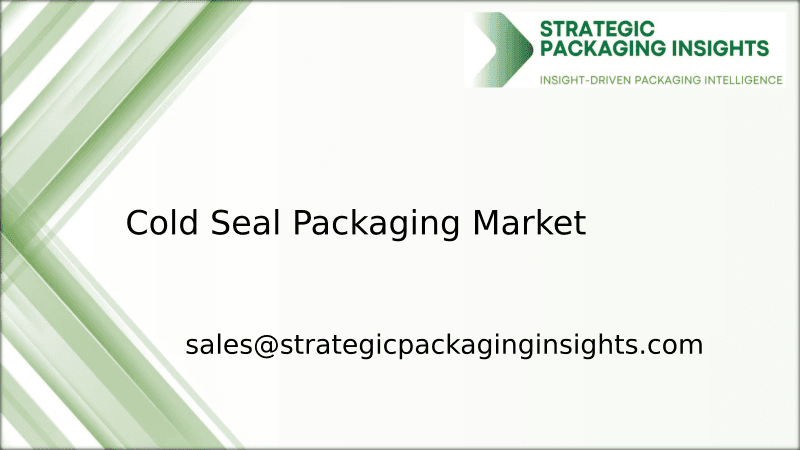
The Cold Seal Packaging market was valued at $1.5 billion in 2024 and is projected to reach $2.3 billion by 2033, growing at a CAGR of 4.8% during the forecast period 2025–2033.

The Transparent Barrier Packaging Films market was valued at $12.5 billion in 2024 and is projected to reach $20.3 billion by 2033, growing at a CAGR of 5.8% during the forecast period 2025–2033.

The Flatback Tape market was valued at $2.5 billion in 2024 and is projected to reach $4.1 billion by 2033, growing at a CAGR of 5.8% during the forecast period 2025–2033.
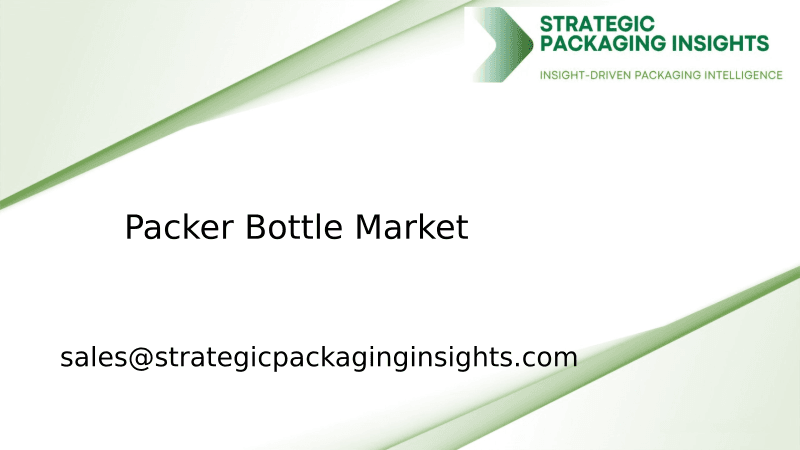
The packer bottle market was valued at $3.5 billion in 2024 and is projected to reach $5.8 billion by 2033, growing at a CAGR of 5.2% during the forecast period 2025–2033.
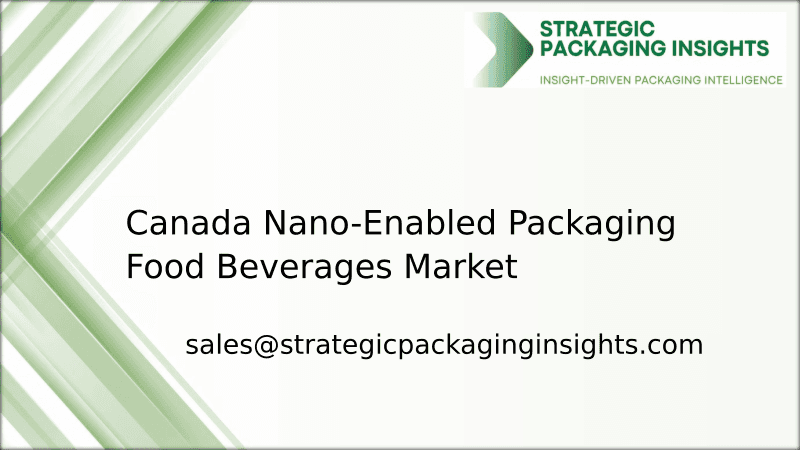
The Canada Nano-Enabled Packaging Food Beverages market was valued at $1.2 billion in 2024 and is projected to reach $3.5 billion by 2033, growing at a CAGR of 12.5% during the forecast period 2025–2033.
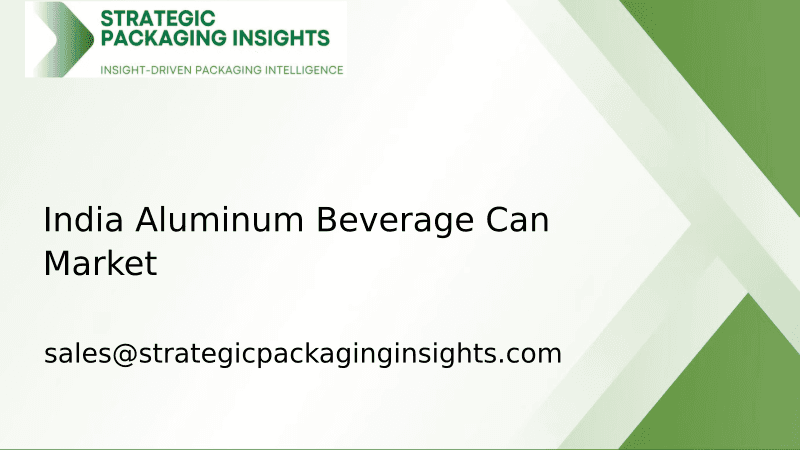
The India Aluminum Beverage Can market was valued at $1.2 billion in 2024 and is projected to reach $2.5 billion by 2033, growing at a CAGR of 8.5% during the forecast period 2025–2033.
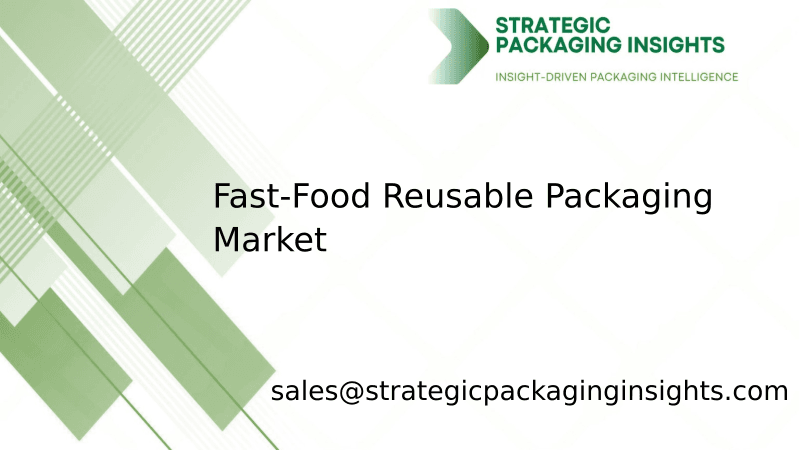
The fast-food reusable packaging market was valued at $1.2 billion in 2024 and is projected to reach $3.5 billion by 2033, growing at a CAGR of 12.5% during the forecast period 2025–2033.
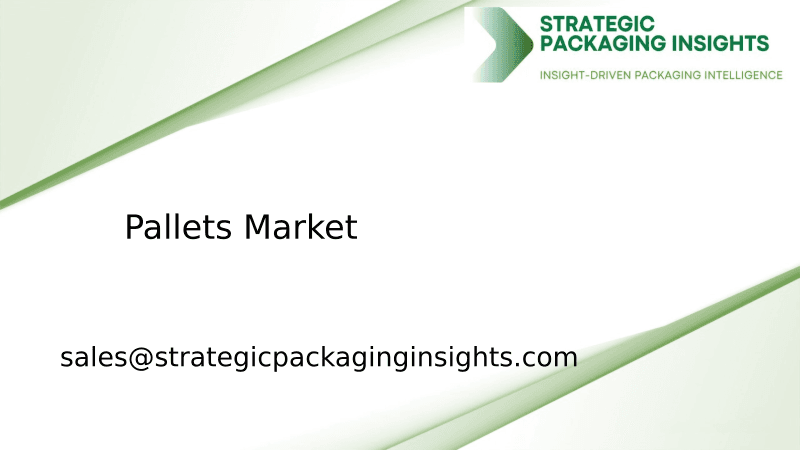
The pallets market was valued at $59.91 billion in 2024 and is projected to reach $88.69 billion by 2033, growing at a CAGR of 4.5% during the forecast period 2025–2033.

The lamination adhesives market was valued at $2.5 billion in 2024 and is projected to reach $4.1 billion by 2033, growing at a CAGR of 5.8% during the forecast period 2025–2033.

The garment packing machine market was valued at $1.2 billion in 2024 and is projected to reach $2.5 billion by 2033, growing at a CAGR of 8.5% during the forecast period 2025–2033.

The fiber drums market was valued at $1.2 billion in 2024 and is projected to reach $2.1 billion by 2033, growing at a CAGR of 6.5% during the forecast period 2025–2033.

The cosmetics and perfumery glass bottles market was valued at $1.5 billion in 2024 and is projected to reach $2.3 billion by 2033, growing at a CAGR of 4.8% during the forecast period 2025–2033.

The medical devices packaging market was valued at $25 billion in 2024 and is projected to reach $40 billion by 2033, growing at a CAGR of 5.5% during the forecast period 2025–2033.

The primary packaging labels market was valued at $35 billion in 2024 and is projected to reach $55 billion by 2033, growing at a CAGR of 5.2% during the forecast period 2025–2033.

The corrugated board packaging market was valued at $250 billion in 2024 and is projected to reach $380 billion by 2033, growing at a CAGR of 4.5% during the forecast period 2025–2033.

The Water Soluble Packaging Films market was valued at $2.8 billion in 2024 and is projected to reach $5.6 billion by 2033, growing at a CAGR of 8.1% during the forecast period 2025–2033.

The Aluminium Foil Packaging market was valued at $25 billion in 2024 and is projected to reach $40 billion by 2033, growing at a CAGR of 5.5% during the forecast period 2025–2033.

The self-heating food packaging market was valued at $4.5 billion in 2024 and is projected to reach $7.8 billion by 2033, growing at a CAGR of 6.2% during the forecast period 2025–2033.

The Smart Container market was valued at $2.5 billion in 2024 and is projected to reach $8.7 billion by 2033, growing at a CAGR of 14.5% during the forecast period 2025–2033.

The Automatic Labeling Machine market was valued at $2.5 billion in 2024 and is projected to reach $4.8 billion by 2033, growing at a CAGR of 7.2% during the forecast period 2025–2033.

The Hot Melt Glue Labeler market was valued at $1.2 billion in 2024 and is projected to reach $2.3 billion by 2033, growing at a CAGR of 6.5% during the forecast period 2025–2033.

The Ethical Label market was valued at $1.5 billion in 2024 and is projected to reach $3.2 billion by 2033, growing at a CAGR of 8.5% during the forecast period 2025–2033.

The Packaging Tensioner market was valued at $1.2 billion in 2024 and is projected to reach $2.3 billion by 2033, growing at a CAGR of 6.5% during the forecast period 2025–2033.

The foodservice packaging market was valued at $120 billion in 2024 and is projected to reach $180 billion by 2033, growing at a CAGR of 4.5% during the forecast period 2025–2033.

The nano-enabled packaging market was valued at $15.2 billion in 2024 and is projected to reach $35.6 billion by 2033, growing at a CAGR of 9.5% during the forecast period 2025–2033.

The Cold Seal Packaging market was valued at $1.5 billion in 2024 and is projected to reach $2.3 billion by 2033, growing at a CAGR of 4.8% during the forecast period 2025–2033.

The Transparent Barrier Packaging Films market was valued at $12.5 billion in 2024 and is projected to reach $20.3 billion by 2033, growing at a CAGR of 5.8% during the forecast period 2025–2033.

The Flatback Tape market was valued at $2.5 billion in 2024 and is projected to reach $4.1 billion by 2033, growing at a CAGR of 5.8% during the forecast period 2025–2033.

The packer bottle market was valued at $3.5 billion in 2024 and is projected to reach $5.8 billion by 2033, growing at a CAGR of 5.2% during the forecast period 2025–2033.

The Canada Nano-Enabled Packaging Food Beverages market was valued at $1.2 billion in 2024 and is projected to reach $3.5 billion by 2033, growing at a CAGR of 12.5% during the forecast period 2025–2033.

The India Aluminum Beverage Can market was valued at $1.2 billion in 2024 and is projected to reach $2.5 billion by 2033, growing at a CAGR of 8.5% during the forecast period 2025–2033.

The fast-food reusable packaging market was valued at $1.2 billion in 2024 and is projected to reach $3.5 billion by 2033, growing at a CAGR of 12.5% during the forecast period 2025–2033.

The pallets market was valued at $59.91 billion in 2024 and is projected to reach $88.69 billion by 2033, growing at a CAGR of 4.5% during the forecast period 2025–2033.

The lamination adhesives market was valued at $2.5 billion in 2024 and is projected to reach $4.1 billion by 2033, growing at a CAGR of 5.8% during the forecast period 2025–2033.

The garment packing machine market was valued at $1.2 billion in 2024 and is projected to reach $2.5 billion by 2033, growing at a CAGR of 8.5% during the forecast period 2025–2033.
